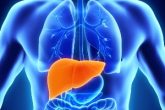
Alcohol is the most widely used drug in the world. It is also the most abused drug in the world. The generally accepted use of alcohol for celebrations and relaxation makes you unaware that it is a particularly harmful substance even in moderate quantities. Car crashes and liver disease are not the only problems due to heavy drinking. Drinking too much, like smoking, damages just about every organ in your body.
When is a drink, one drink too many?
What exactly constitutes “excessive” drinking? Well, let’s first define what is globally accepted as a “drink.”
A “drink” is one shot of liquor, a five-ounce (150ml) glass of wine or 12 ounces of beer (half a bottle of beer), all of which contain the same amount of alcohol – 14gms of pure alcohol.
Excessive drinking comes in two forms:
- Binge drinking, the most common type of excessive drinking, is having many drinks during a single occasion (women – 4 or more drinks; men – 5 or more drinks during a single occasion)
- Heavy drinking is regularly having several drinks over time (women – 8 or more drinks per week; men – 15 or more drinks per week)
If you take up to 1 drink per day (women) or up to 2 drinks per day (men), you’re already a moderate drinker.
The WHO estimates that over 2 million people each year die from the effects of drinking, through illness, overdoses or accidents. Unlike smoking, which has mostly long-term health effects, drinking too much causes immediate and long-term health problems.

There are immediate effects of excessive alcohol use that put you at serious risk for:
- Injuries, such as motor vehicle accidents, falls, drowning, and burns
- Violence, including homicide, suicide, sexual assault, and intimate partner violence
- Alcohol poisoning, a medical emergency that results from high blood alcohol levels
- Risky sexual behaviours, including unprotected sex or sex with multiple partners – can result in unintended pregnancy or sexually transmitted diseases, including HIV
- Miscarriage, stillbirth or birth defects (Fetal Alcohol Syndrome) among pregnant women
Long-term effects of excessive drinking
Liver damage is the most widely known effect of excessive alcohol use. The liver is one of your most important organs, with many vital functions essential for life. Alcohol causes liver inflammation that is reversible in the early stages but becomes irreversible over time leading to chronic liver disease, liver failure, liver cancer, and death.
Other long-term health problems from excessive drinking include:
- Brain damage – causing learning and memory problems, including dementia, poor school performance, and mental health problems such as depression and anxiety
- Cardiovascular diseases such as high blood pressure, heart disease, and stroke
- Diabetes
- Digestive issues including the risk of severe, life-threatening bleeding from the stomach
- Cancer of the mouth, throat, oesophagus, colon, and breast.
- Reproductive problems including male impotence, infertility, disrupted menstrual cycle, repeated miscarriage, stillbirth or premature delivery
- Social issues, including lost productivity, family problems, and unemployment.
- Alcohol dependence, or alcoholism.

Drinking too much can also weaken your immune system, making you more prone to infections like pneumonia and TB. Do you know that drinking a lot on a single occasion reduces your body’s ability to fight germs for up to 24 hours after getting drunk?
If you drink alcohol while pregnant, you’re more likely to have a baby die from Sudden Infant Death Syndrome (SIDS). Alcohol is also well known for causing birth defects known as FAS or Fetal Alcohol Syndrome. Babies born with FAS are much smaller than other babies, have abnormal facial features and may have brain damage. They often have behaviour, developmental and learning problems, impaired motor skills, poor muscle tone, and coordination.
The facts tell us that nothing good comes out of drinking too much – it’s a poison. You can reduce the risk of these short- and long-term health problems by limiting the amount of alcohol you drink. DON’T DELAY, START TODAY.

